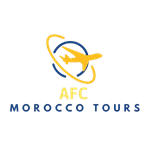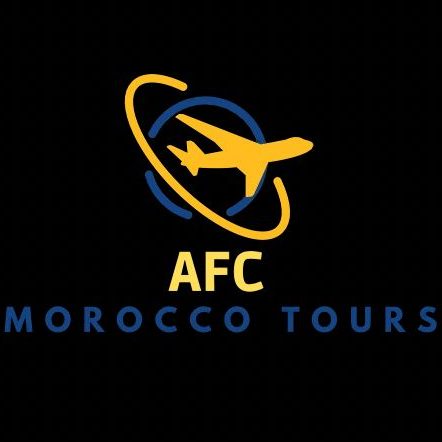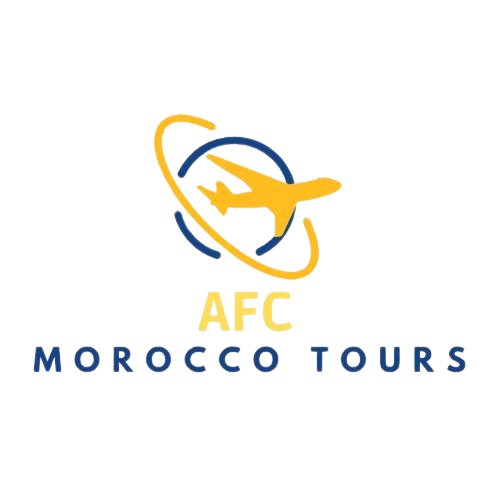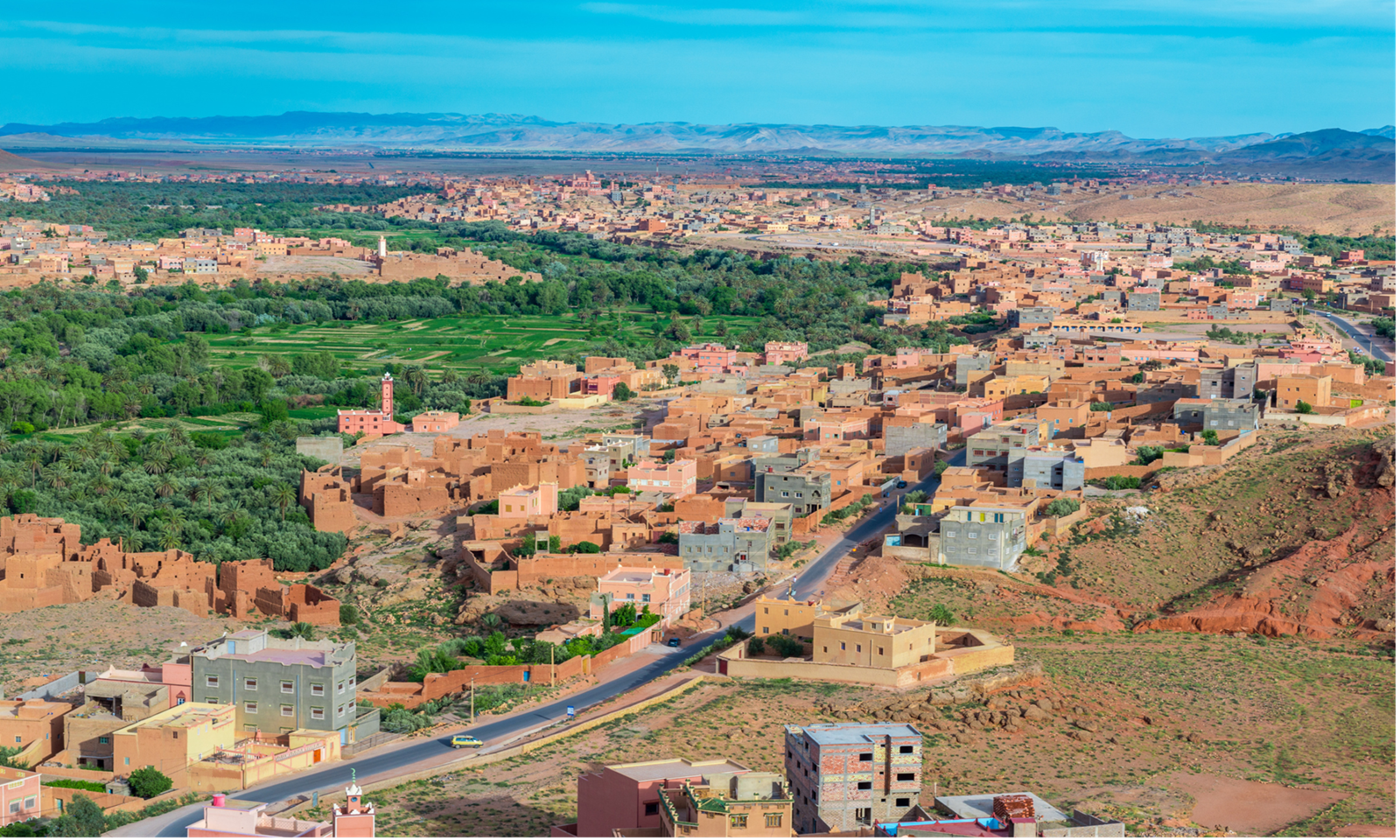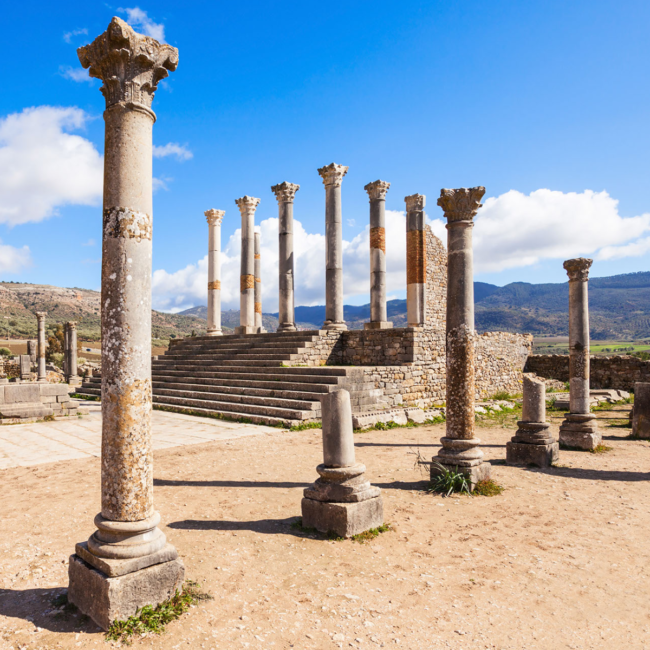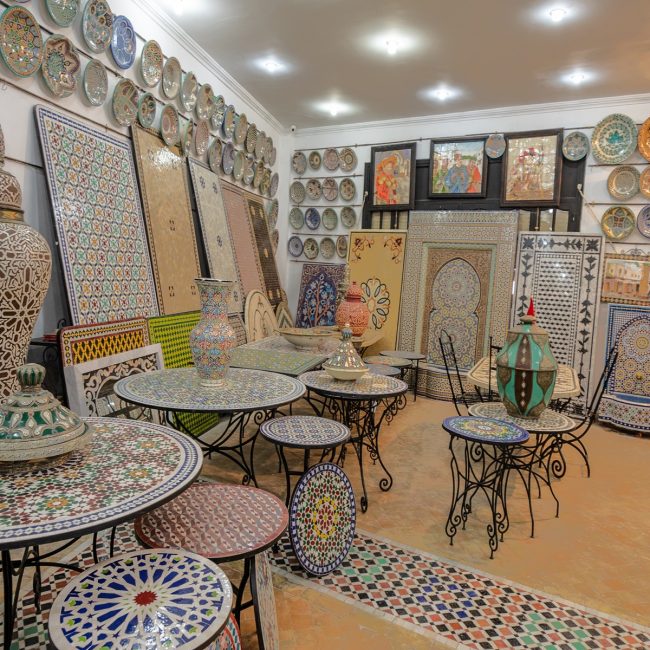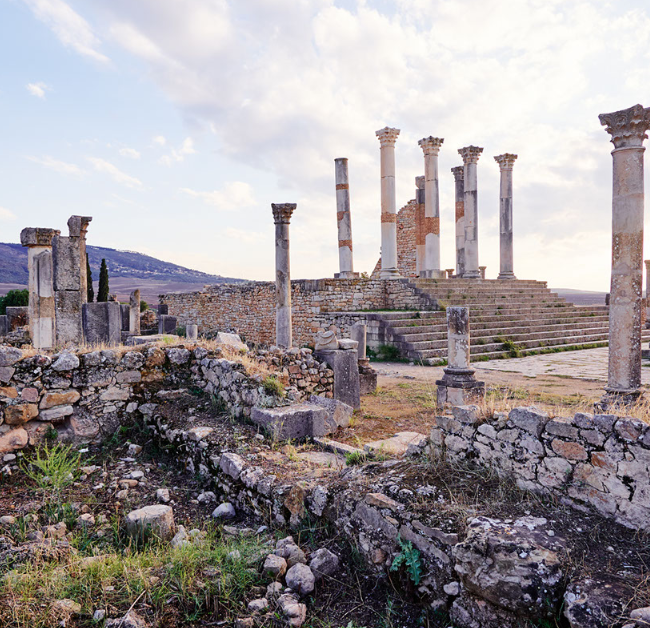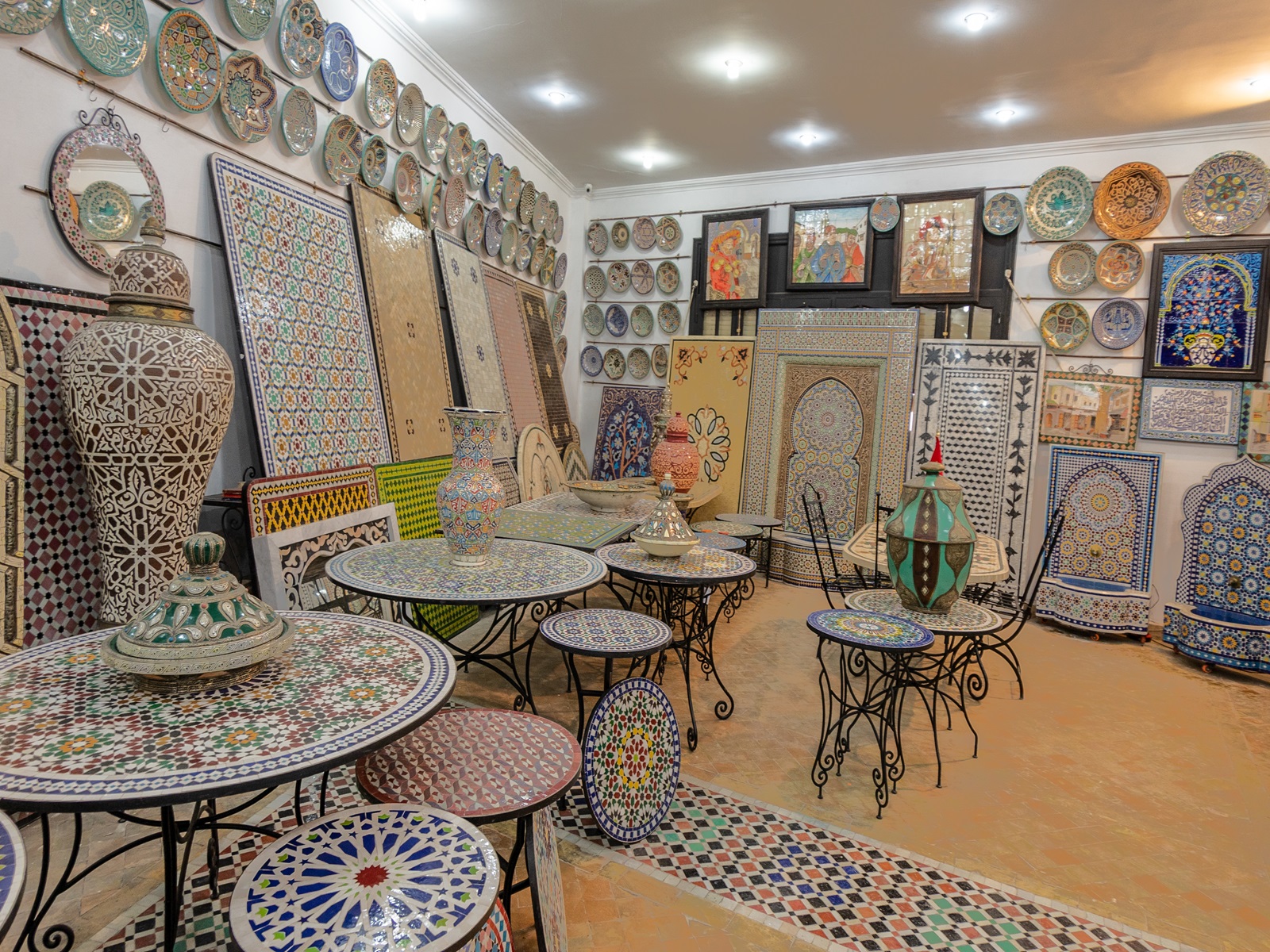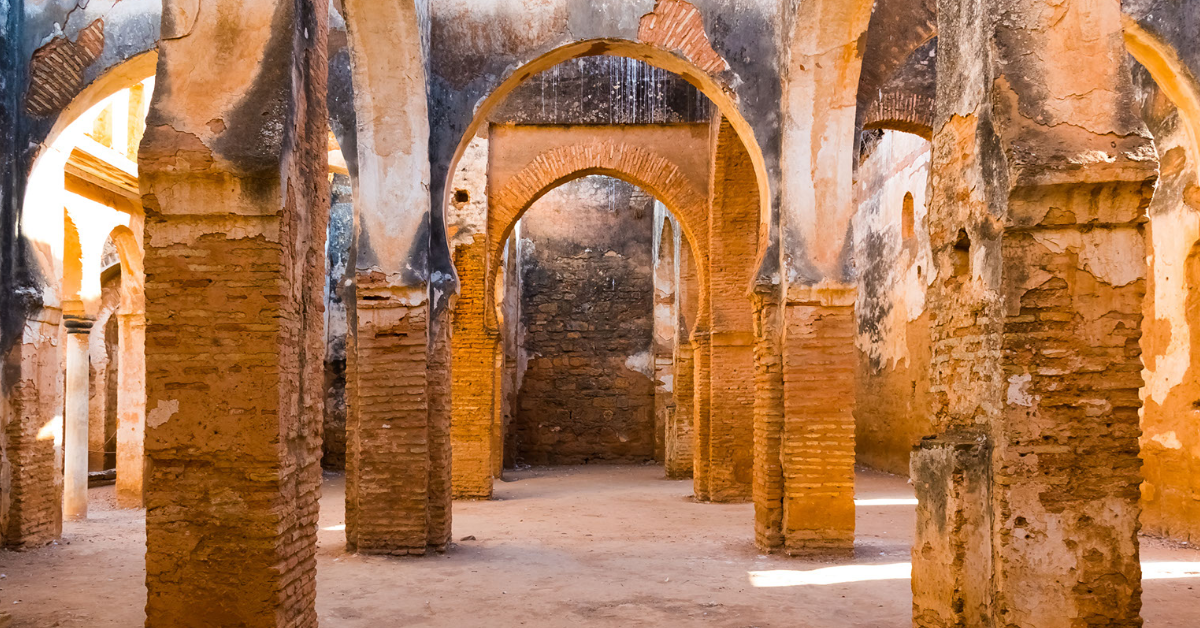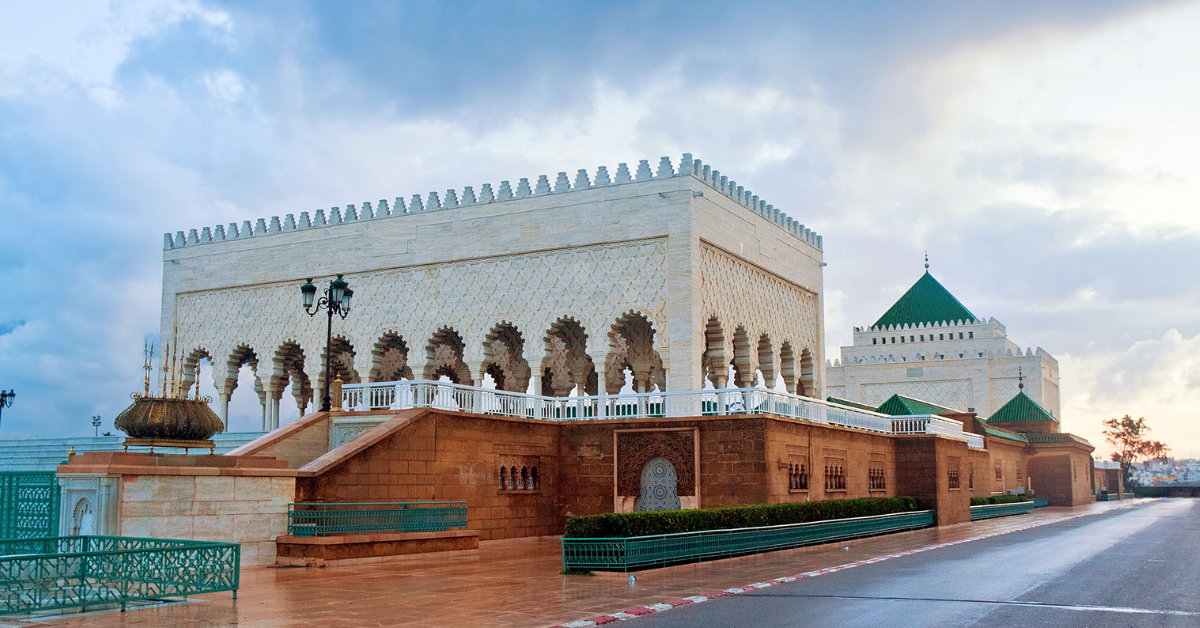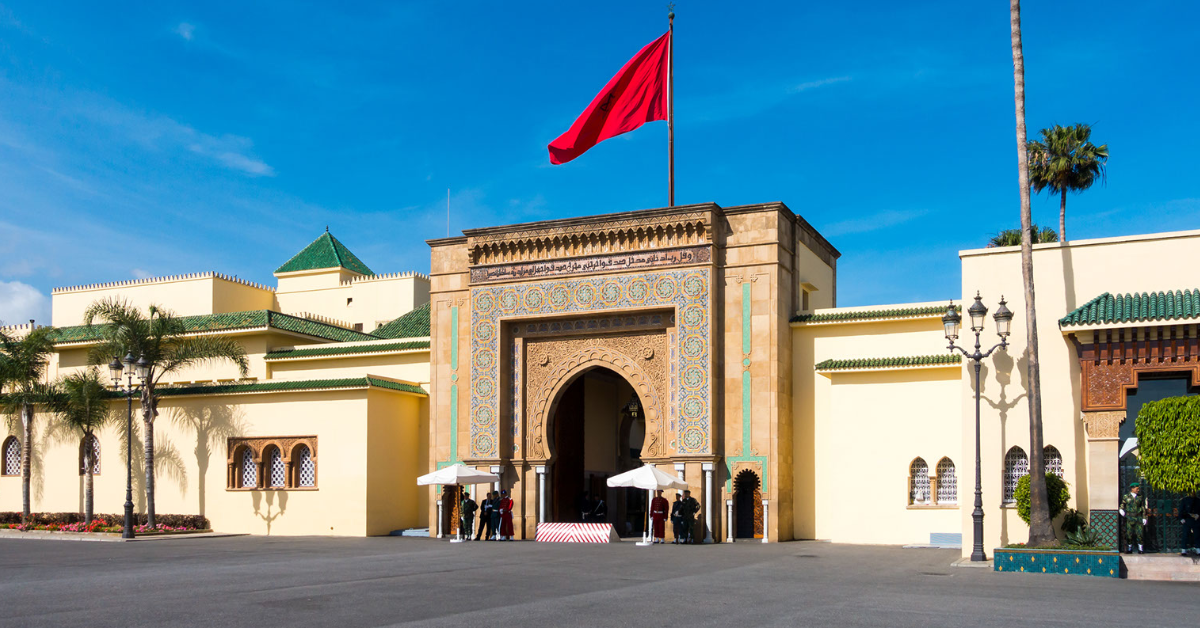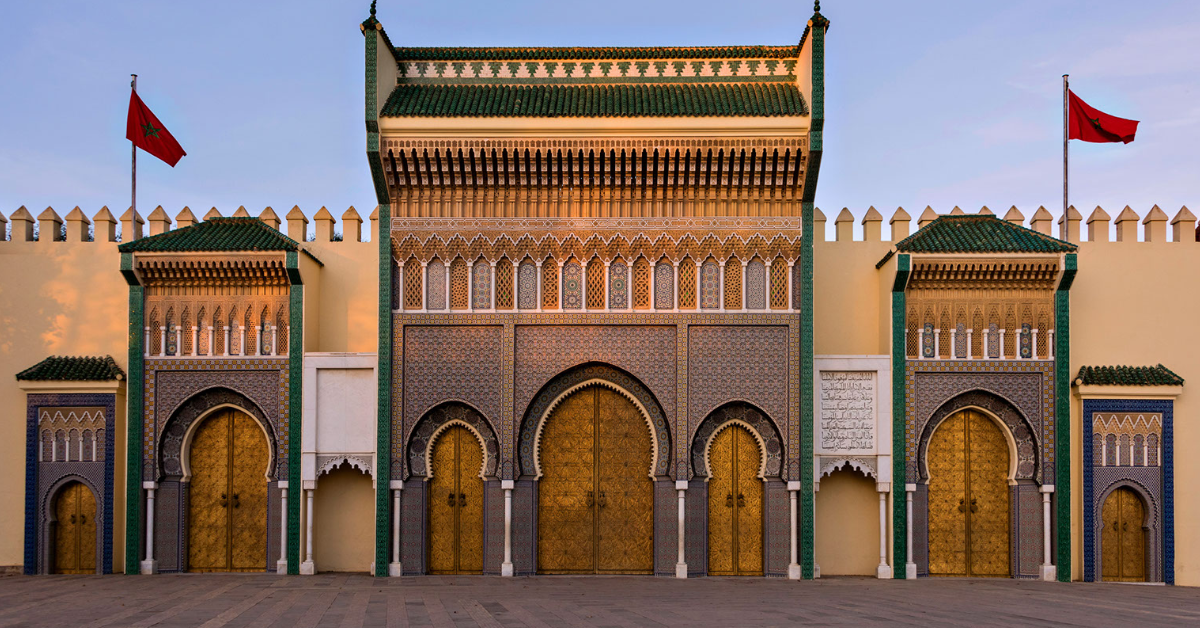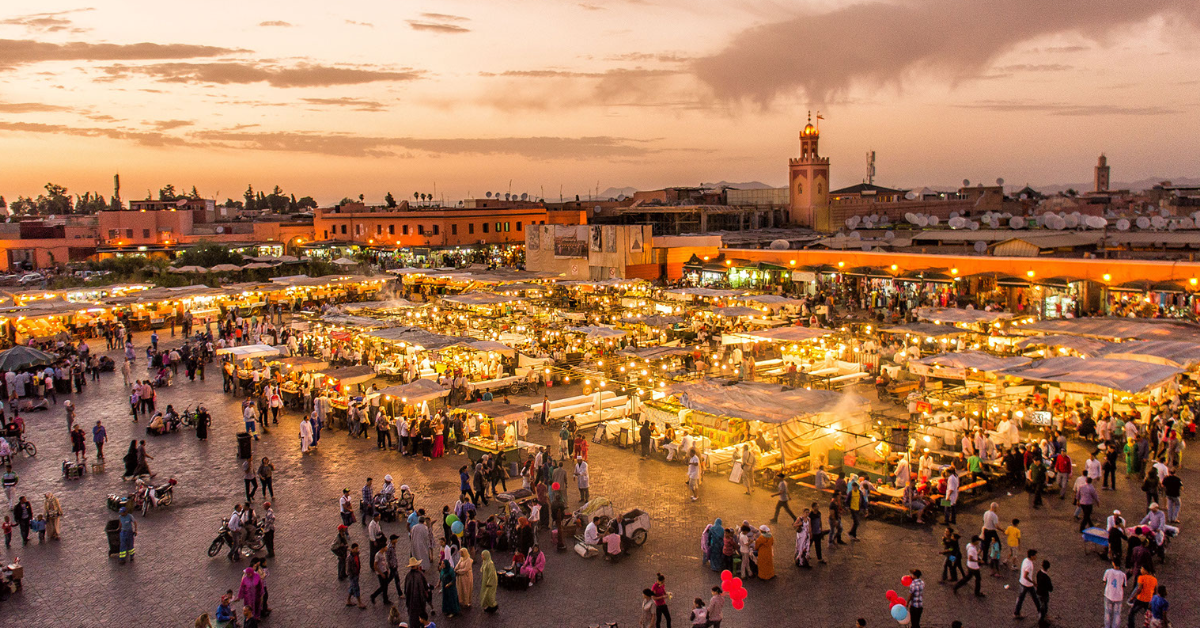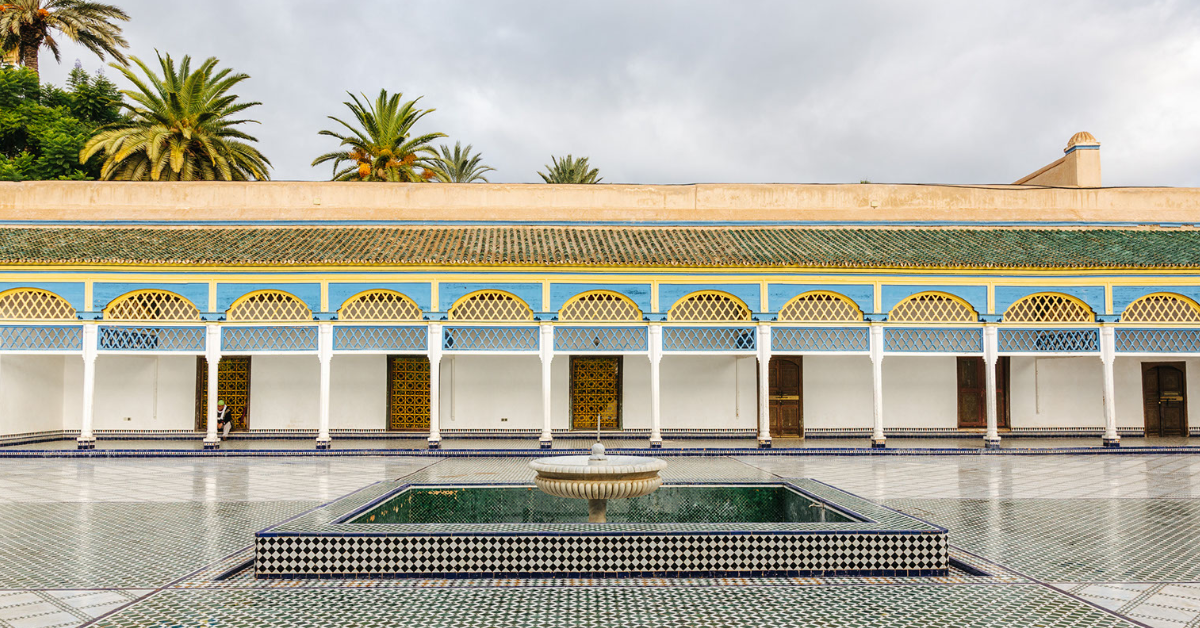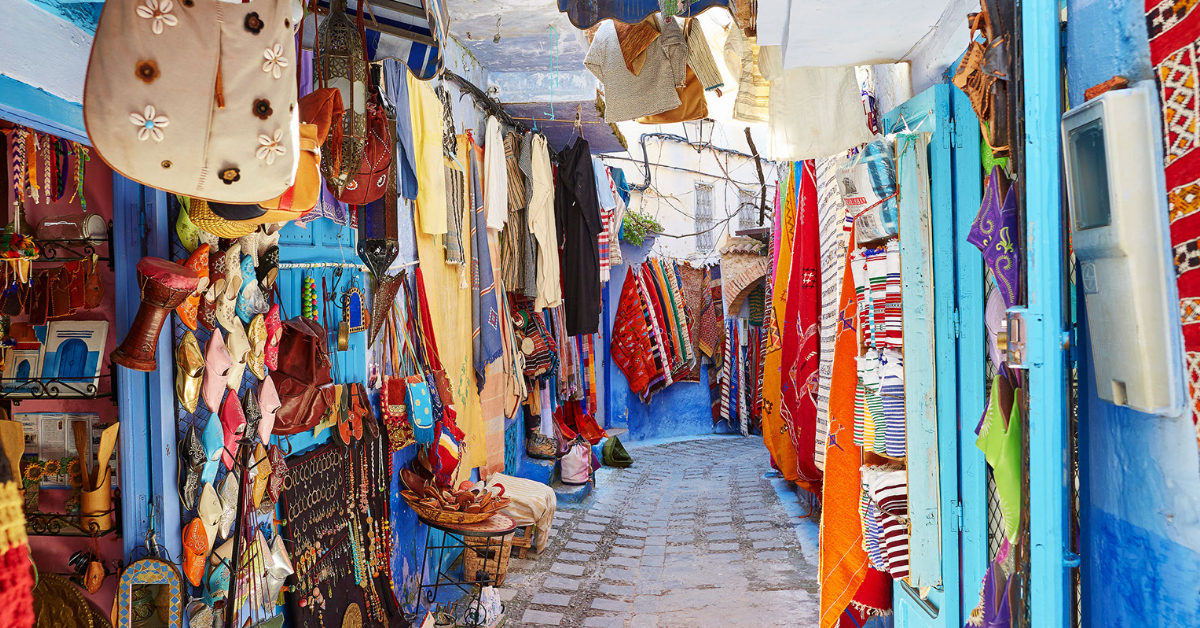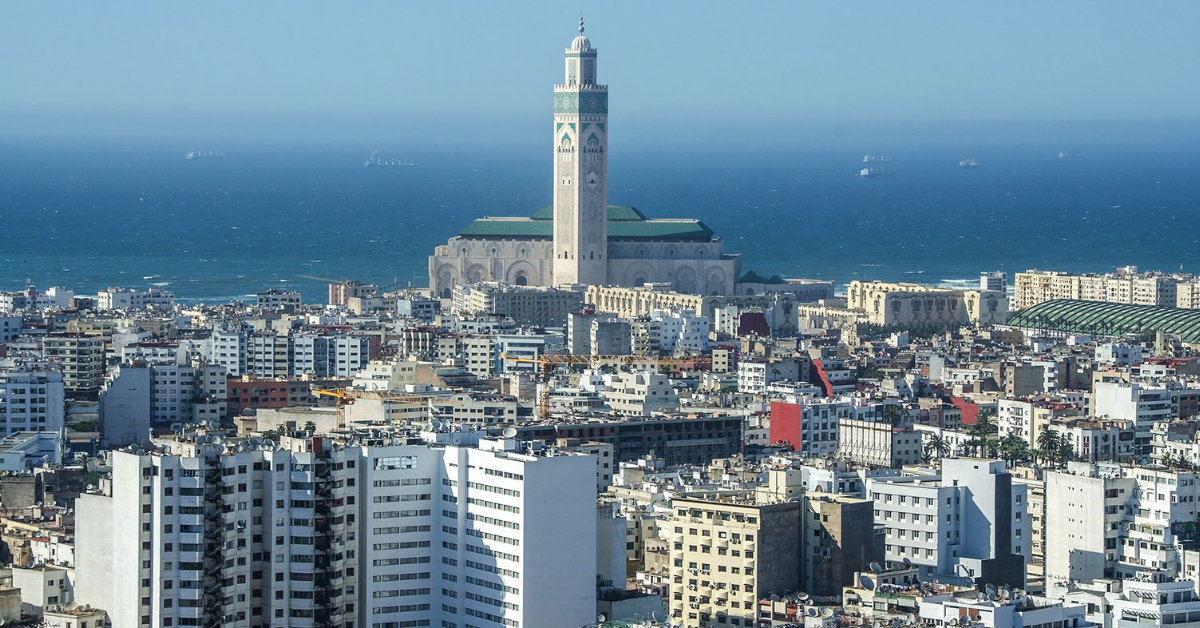Morocco Heritage & Culture 15-Day Small-group Tour
Morocco Heritage & Culture 15-Day Small-group Tour,
you might have seen stunning views of the Moroccan deserts, sandy dunes, and camels on people’s Instagram and Facebook. It’s time to explore these breathtaking sights on your own. Visit the world’s most famous Sahara Desert and get acquainted with one of the oldest cultures in the world.
Mix with the indigenous Berbers and learn about their enchanting culture, explore the desert towns of Merzouga and Erfoud, enjoy camel safaris, listen to the mystic tales of storytellers in the Djemma el Fna Square, conquer the Atlas Mountains, and spend a few nights camping in the desert under the shimmering stars. Luxury Small Group Journeys, Morocco Holidays Packages.
An unforgettable
15-day Small Group Journeys in Morocco
through this captivating land, where ancient traditions meet vibrant cultures and breathtaking landscapes. From the bustling medinas of Marrakech to the serene sands of the Sahara Desert, you will explore the diverse regions that make Morocco truly unique. Discover the stunning architecture of historical cities, indulge in the rich flavors of Moroccan cuisine, and immerse yourself in the warm hospitality of the local people.
Your Morocco Heritage & Culture 15-Day Small-group Tour,
will take you through the majestic Atlas Mountains, where picturesque Berber villages dot the landscape, and into the charming coastal town of Essaouira, known for its whitewashed buildings and vibrant arts scene. You’ll wander through the winding streets of Fes, one of the world’s oldest cities, and experience the stunning beauty of the Todra Gorge and the vast expanses of the Sahara Desert. Each day will bring new experiences, from exploring bustling souks to savoring traditional meals and enjoying the rhythm of Moroccan life.
Join us as we uncover the secrets of Morocco, where every moment is a chance to create lasting memories and discover the heart of this enchanting country. Whether you’re a seasoned traveler or on your first adventure, this tour promises to leave you with a deeper appreciation for Morocco’s rich heritage and diverse landscapes. Let the journey begin!
-
Departure
Casablanca -
Departure Time
Depends on your flight Arrival time -
Return Time
Depends on yoyur return flight time -
Included
Camel trek (one camel per guest)Entrance FeesLocal guides in major cities: Fes; Marrakech, Casablanca mosque, Volubilis; Essaouira, Atlas MountainsMeals as per itineraryNew air-conditioned vehicle 4WD or Minivan/Mini BusOvernight in Desert Luxury CampPick-up and Drop Off ServiceProfessional driver/Tour guide during the tour -
Not Included
FlightsLunches and drinks unless specifiedPersonal expenses
Tour Plan
Day 1: Casablanca Arrival
Day 2: Casablanca to Rabat
Day 3: Rabat to Fes
Day 4: Exploring Fes
Day 5: Exploring the hidden gems of Fes
- The Medina of Fes el-Bali, a UNESCO World Heritage Site dating back to the 9th century. It is one of the oldest and best-preserved medieval cities in the world, with narrow winding streets, traditional markets, and many religious and cultural landmarks.
- The Bou Inania Madrasa is a 14th-century Islamic school and architectural masterpiece known for its ornate tilework and intricate stucco decoration.
- The Dar Batha Museum, which was once a palace now houses a collection of Moroccan art and artifacts, including ceramics, textiles, and metalwork.
- The Royal Palace of Fes dates back to the 14th century and was once the residence of the Moroccan monarchs. It is not open to the public but can be viewed from the outside.
- The Tombs of the Merinids, a necropolis located on a hill outside of the city, contains the tombs of the Merenid dynasty, which ruled Morocco during the 13th and 14th centuries.
Day 6: Fes to Merzouga Desert
After having breakfast at the hotel, we will depart for Merzouga, passing through Ifrane, often called the Switzerland of Morocco. Our first stop will be at the Azrou forest, where we can pause to observe the monkeys climbing the cedar trees. We’ll then continue through the Middle Atlas mountains to reach Midelt, where we'll stop for lunch. From there, we will enjoy the shifting desert landscapes as we drive through the Ziz Valley and its gorges, passing Errachidia before arriving in Merzouga. Upon arrival, you can unwind with a refreshing mint tea before embarking on a new desert adventure. A camel trek lasting about 1.5 hours will take you across the towering dunes to witness the sunset. You'll spend the night in a nomadic tent at the Erg Chebbi dunes, with dinner and accommodation provided at a desert camp.
Day 7: Merzouga desert – Todra gorges – Dades valley – Skoura
Rise early to witness the breathtaking sunrise over the dunes before riding camels back to the village, accompanied by the dromedaries, where a hot, refreshing shower awaits. Afterward, we will depart from the desert and head toward the magnificent Todra Gorge, a stunning 1,000-foot canyon flanked by towering vertical limestone cliffs. Known as Morocco’s Grand Canyon, you'll have ample time to explore the gorge, wandering its deep ravines and gazing up at its dizzying heights. The beauty of Todra lies in the ever-changing hues of the rock as the sun moves across the sky, illuminating vibrant fruit and nut trees, as well as the striking red rock formations.
Our journey continues along the famous "Thousand Kasbahs Route", winding through the lush Rose Valley. Along the way, you'll witness fields of roses and a unique landscape shaped by centuries of history. We’ll make a stop at the Skoura Oasis, home to several authentic 17th-century kasbahs, where you can explore the ancient fortresses nestled among the palm groves. The journey then leads us to the cinematic town of Ouarzazate, where many films have been shot due to its captivating desert landscapes. Here, you'll enjoy a traditional Moroccan dinner and spend the night in a comfortable hotel, preparing for the next leg of your adventure.
Day 8: Skoura oasis – Ait ben haddou – High atlas Mountains
The journey begins in the serene **Skoura Oasis**, a lush expanse of palm groves dotted with ancient kasbahs, where you can explore the iconic **Amridil Kasbah**, a well-preserved 17th-century fortress. As you leave the peaceful oasis behind, the landscape transitions into more dramatic desert scenery as you head toward **Ouarzazate**, Morocco's "Hollywood of the Desert." Known for its cinematic history, Ouarzazate is home to the **Atlas Film Studios**, where many famous films were shot. After a brief exploration of the town and its stunning Taourirt Kasbah, you’ll continue to one of Morocco's most famous landmarks, Ait Benhaddou.
Ait Benhaddou, a UNESCO World Heritage Site, is an ancient fortified village that sits along the former caravan route between the Sahara and Marrakech. The kasbah’s striking red mud-brick architecture stands in stark contrast to the surrounding desert landscape, making it a popular stop for travelers. After exploring its maze of narrow alleys and climbing to the top for panoramic views, the journey continues over the dramatic **Tizi n'Tichka Pass** in the High Atlas Mountains. As you wind through the mountain roads, you’ll witness breathtaking views of terraced fields and Berber villages before arriving at the high Atlas Mountains in Imlil Valley.
Day 9: Guided hiking tour in High Atlas
Today, your adventure begins with a **half-day hike** through the picturesque **Berber villages** nestled on the foothills of the **High Atlas Mountains**. As you trek along winding paths surrounded by terraced fields, you'll have the opportunity to witness traditional Berber life up close. The friendly villagers, many of whom still maintain centuries-old customs, will welcome you with warm smiles and stories of their deep connection to the land. Along the way, you’ll enjoy breathtaking views of the rugged mountains, charming stone houses, and vibrant green valleys that contrast beautifully with the arid surroundings. This hike not only offers scenic beauty but also a chance to experience the unique culture and hospitality of the indigenous Berber people.
In the afternoon, you will visit a local **school**, a beacon of hope for the children of these remote villages. This school, established by the **Assafou Foundation**, was built to provide essential education to the children who, without it, would have had no access to schooling due to their remote location. The foundation's mission is to uplift these communities by giving their youth the tools for a brighter future through education. During your visit, you will meet with the students and teachers, gaining insight into the challenges they face and the incredible impact the school has on their lives. This part of the journey highlights the important work being done to empower these communities while preserving their rich cultural heritage.
Day 10: High Atlas to Essaouira
Today, it's time to bid farewell to the towering **High Atlas Mountains** as you set off on a new adventure to the enchanting coastal town of **Essaouira**. Known for its laid-back atmosphere and rich history, Essaouira offers a striking contrast to the rugged beauty of the mountains. This **Portuguese-influenced port city**, with its distinctive whitewashed walls, blue shutters, and bustling fishing harbor, is steeped in charm and offers a unique blend of cultures. As you wander through its lively streets, you’ll discover a medina that’s a UNESCO World Heritage Site, filled with artisan shops, galleries, and cafés where you can sample fresh seafood caught just that morning.
One of Essaouira’s most captivating attractions is the **Gnaoua World Music Festival**, a vibrant event that brings together musicians from all over the world. If you’re visiting in **June**, this festival is an unmissable highlight, where the rhythmic beats of traditional Gnaoua music—fused with jazz, reggae, and other genres—fill the air, creating a soulful, energizing atmosphere. The festival celebrates the city's rich Gnaoua heritage, rooted in African spiritual traditions. Even outside the festival season, Essaouira is alive with street performers and the hum of creative energy.
During your stay, you'll be accommodated in the heart of **Essaouira's city center**, allowing you to fully immerse yourself in its coastal charm. Whether you're exploring the bustling souks, strolling along the windswept beaches, or admiring the striking views from the **Skala de la Ville**, a fortified sea wall lined with cannons, your time in Essaouira promises to be a delightful mix of relaxation, culture, and discovery. The city's fusion of Portuguese, Berber, and French influences, along with its relaxed seaside vibe, will leave a lasting impression as you explore its many hidden gems.Day 11: Exploring Essaouira
Today, your adventure begins with a **half-day hike** through the picturesque **Berber villages** nestled on the foothills of the **High Atlas Mountains**. As you trek along winding paths surrounded by terraced fields, you'll have the opportunity to witness traditional Berber life up close. The friendly villagers, many of whom still maintain centuries-old customs, will welcome you with warm smiles and stories of their deep connection to the land. Along the way, you’ll enjoy breathtaking views of the rugged mountains, charming stone houses, and vibrant green valleys that contrast beautifully with the arid surroundings. This hike not only offers scenic beauty but also a chance to experience the unique culture and hospitality of the indigenous Berber people.
In the afternoon, you will visit a local **school**, a beacon of hope for the children of these remote villages. This school, established by the **Assafou Foundation**, was built to provide essential education to the children who, without it, would have had no access to schooling due to their remote location. The foundation's mission is to uplift these communities by giving their youth the tools for a brighter future through education. During your visit, you will meet with the students and teachers, gaining insight into the challenges they face and the incredible impact the school has on their lives. This part of the journey highlights the important work being done to empower these communities while preserving their rich cultural heritage.
Day 12: Essaouira to Marrakech
In the morning, take some time to further explore the enchanting streets of **Essaouira** at your own pace. This relaxed coastal town invites you to discover its hidden gems, whether it's a stroll along the **windswept beach** with views of the crashing Atlantic waves or a deeper dive into the vibrant **souk**, where local artisans display their hand-carved thuya woodwork, colorful pottery, and intricately woven rugs. You might choose to visit the **Skala du Port**, where fishermen work amid the backdrop of ancient ramparts, or simply wander through the medina’s maze-like alleyways, absorbing the city's rich atmosphere. For lunch, treat yourself to a meal in one of Essaouira’s many seafood restaurants, where fresh catches of the day are grilled to perfection, accompanied by zesty Moroccan salads and mint tea.
As the afternoon unfolds, you’ll begin the journey from the coast inland, toward the magical city of **Marrakech**. The drive takes you through changing landscapes, from the breezy shores of the Atlantic to the vibrant reds and ochres of Morocco’s interior. Upon arriving in Marrakech in the early evening, you'll be welcomed by the energetic hum of the city, where the **Jemaa el-Fnaa** square comes alive with storytellers, musicians, and food stalls. This evening marks the beginning of your stay in Marrakech, where you will spend the final couple of days of your trip, exploring the city's rich history, captivating souks, and vibrant culture. Whether you choose to unwind in a traditional **riad** or take a sunset stroll through the city, your Marrakech adventure promises to be a memorable and fitting conclusion to your Moroccan journey.
Day 13: Exploring Marrakech
Today is a full day of sightseeing, immersing you in the rich history and vibrant culture of **Marrakech**. Your first stop is the magnificent **Bahia Palace**, a masterpiece of Moroccan architecture built in the late 19th century. As you wander through its vast courtyards, intricately decorated rooms, and tranquil gardens, your guide will share stories of the palace's opulent past, where sultans and their families once lived. Next, you’ll visit the iconic **Koutoubia Mosque**, the largest mosque in Marrakech, with its soaring 77-meter minaret that dominates the city's skyline. Though non-Muslims cannot enter, you can explore its beautiful exterior and surrounding gardens. Afterward, you will head to the **Saadian Tombs**, a hidden treasure of Morocco, only rediscovered in 1917. These tombs are the resting place of the Saadian dynasty and are renowned for their delicate stucco work, colorful tiles, and peaceful setting.
In the afternoon, you’ll dive deeper into the beating heart of **Marrakech** with a visit to the famous **Jemaa el-Fnaa** square. This lively square is the soul of the city, bustling with musicians, snake charmers, and food stalls. It’s the perfect place to soak in the atmosphere of Marrakech’s everyday life. As the day continues, you'll venture into the city's **souk** districts, where you’ll get a unique opportunity to meet Morocco’s native craftsmen. Explore workshops where artisans skillfully create traditional goods like **hand-woven carpets, delicate pottery, leather goods, and vibrant textiles**, using techniques passed down through generations. Watching these craftsmen at work offers a fascinating glimpse into Morocco's rich cultural heritage and artisanal traditions. You’ll also have the chance to purchase authentic, handcrafted souvenirs, making your experience not only educational but also personal and memorable.
This day filled with cultural exploration and encounters with Moroccan artistry will leave you with a deeper appreciation for Marrakech’s historical landmarks and the creativity that thrives in its streets.
Day 14: Explore the hidden Medina of Marrakech
Start your day by venturing into the lesser-known, unexplored side of **Marrakech**, uncovering hidden gems that offer a deeper, more authentic connection to the city's rich culture. Away from the bustling medina, you’ll explore neighborhoods and landmarks that many tourists miss, from ancient alleyways to quiet corners filled with local life, offering a unique perspective on the everyday rhythms of the city. After this immersive morning, you’ll move on to explore some of **Morocco’s most scenic gardens**, serene havens that stand in stark contrast to the city's vibrancy. Wander through beautifully landscaped spaces like the iconic **Majorelle Garden**, with its striking blue buildings and exotic plant collection, or the peaceful **Menara Gardens**, where olive groves and a tranquil pool reflect the snow-capped Atlas Mountains in the distance.
In the afternoon, you’ll shift focus to the inspiring ways **Moroccan women** are being empowered in modern society. Visit two **women’s cooperatives**, where local women work together to produce traditional crafts or organic products like **argan oil** and handcrafted textiles. Here, you will see firsthand how these cooperatives provide women with opportunities for economic independence, education, and community support. It’s a powerful look into the role these cooperatives play in changing lives and preserving Moroccan heritage.
Day 15: Return Flight
Depending on your flight time, you will be dropped off at the airport for your return flight back home.
-
Stargazing in the Sahara
-
Explore the Majestic Gorges of Dades and Todra
-
Culinary Journey: Cooking with the Locals
-
Atlas Mountains Village Stay
-
Visit a Women's Cooperative
-
Sunset Camel Ride and Desert Camping
-
Hammam and Spa Experience
Travel Tips for Morocco Travelers - Things you should know before visiting Morocco - Facts About Morocco - What to pack for your Morocco Trip
More and more people are visiting Morocco every year. It’s a beautiful country. If you plan on going, here are a few pointers to help you prepare for your trip.- Dress Appropriately
- Currency and Cost
- ATMs.
- Keep Correct Change with You
- Tipping
- Be Wary of Local Guides.
- Stay Away from Strangers Offering Free Tours or Directions.
- Fridays are Holy Days and Prepare for Holidays
- Careful What Water You Use
- Pack Some Immodium
- Watch Your Pockets
- What Language Do They Speak?
- Hello(Peace Be With You): Salam Alikome (salaam a eleikum)
- Thank You:Choukran (shokran)
- No Thank You: La Choukran (la shokran). This one is useful when you have a bunch of street vendors hassling you to buy something.
- Watch Out: Although you won’t use this yourself, you’ll most likely hear this in the medinas or souks (outdoor markets). It will be said by locals coming by with a mule, motorcycle, or cart and is a warning to move to the side.
- Visiting Mosques:
- Do I Need a Visa or Vaccines?
- Ask Before Taking Photos (And You May Have to Pay).
- Souvenirs to Bring Home:
****************************


